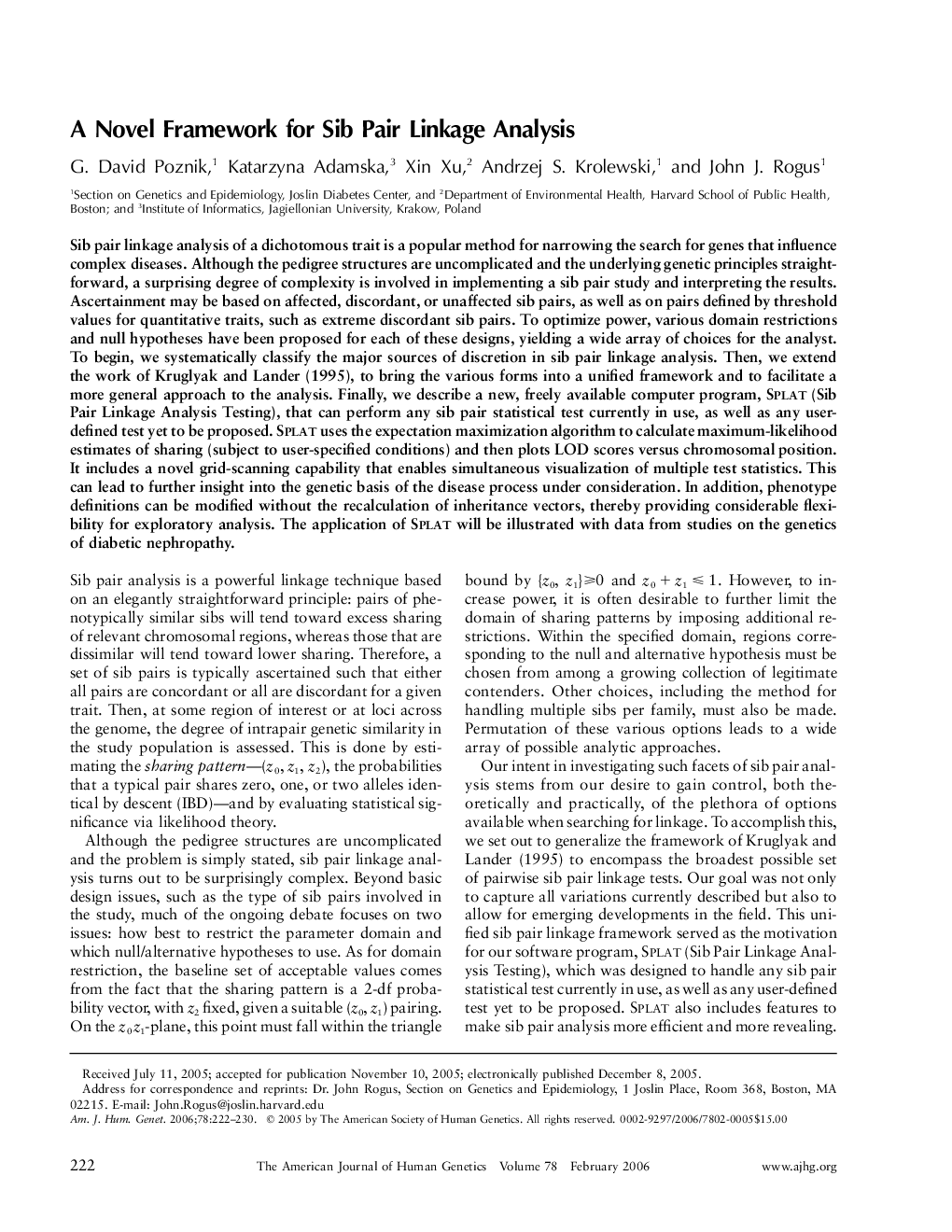| Article ID | Journal | Published Year | Pages | File Type |
|---|---|---|---|---|
| 2812546 | The American Journal of Human Genetics | 2006 | 9 Pages |
Sib pair linkage analysis of a dichotomous trait is a popular method for narrowing the search for genes that influence complex diseases. Although the pedigree structures are uncomplicated and the underlying genetic principles straightforward, a surprising degree of complexity is involved in implementing a sib pair study and interpreting the results. Ascertainment may be based on affected, discordant, or unaffected sib pairs, as well as on pairs defined by threshold values for quantitative traits, such as extreme discordant sib pairs. To optimize power, various domain restrictions and null hypotheses have been proposed for each of these designs, yielding a wide array of choices for the analyst. To begin, we systematically classify the major sources of discretion in sib pair linkage analysis. Then, we extend the work of Kruglyak and Lander (1995), to bring the various forms into a unified framework and to facilitate a more general approach to the analysis. Finally, we describe a new, freely available computer program, Splat (Sib Pair Linkage Analysis Testing), that can perform any sib pair statistical test currently in use, as well as any user-defined test yet to be proposed. Splat uses the expectation maximization algorithm to calculate maximum-likelihood estimates of sharing (subject to user-specified conditions) and then plots LOD scores versus chromosomal position. It includes a novel grid-scanning capability that enables simultaneous visualization of multiple test statistics. This can lead to further insight into the genetic basis of the disease process under consideration. In addition, phenotype definitions can be modified without the recalculation of inheritance vectors, thereby providing considerable flexibility for exploratory analysis. The application of Splat will be illustrated with data from studies on the genetics of diabetic nephropathy.
